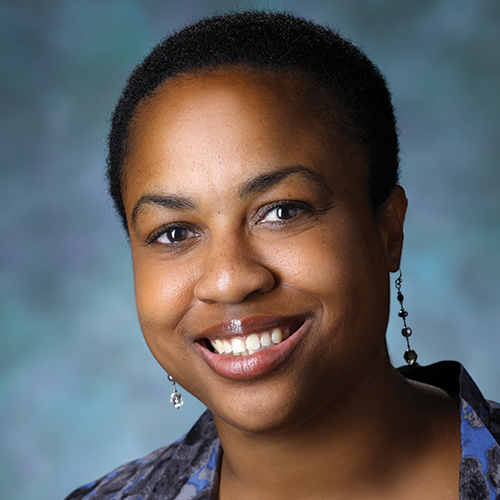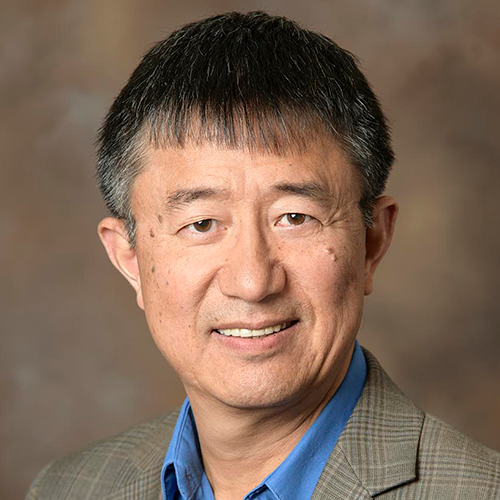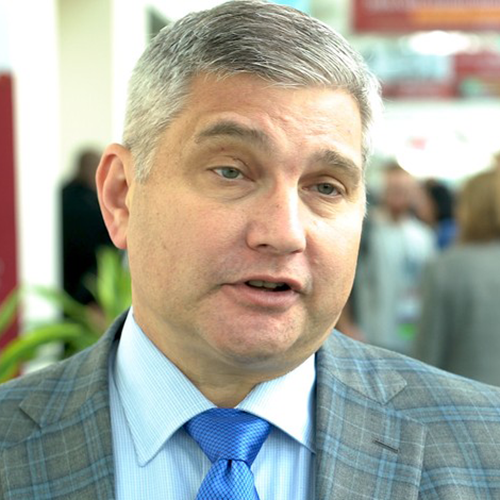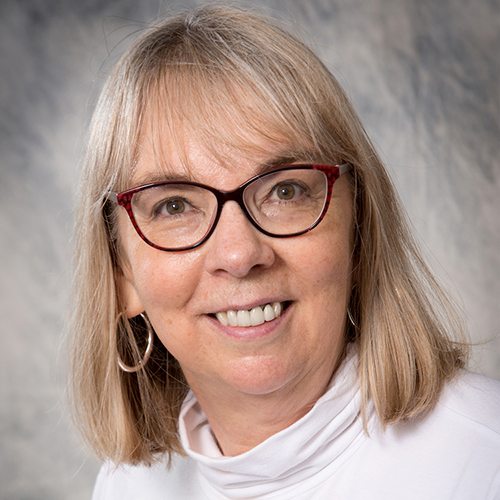ASPET announces new leadership
Four members of the American Society for Biochemistry and Molecular Biology are poised to take leadership roles this summer in the American Society for Pharmacology and Experimental Therapeutics: Namandjé Bumpus, Xinxin Ding, Lawrence Boise and Maurine Linder.

Namandjé Bumpus, a professor and director of the department of pharmacology and molecular sciences at Johns Hopkins University School of Medicine, has been elected president of ASPET. Her term will begin July 1.
Bumpus studies the metabolism of antiviral drugs used to treat HIV and hepatitis by the cytochromes P450 family of liver enzymes. Her lab uses pharmacogenomic and metabolomic approaches to understand why some antivirals cause drug-induced acute liver failure in hopes of developing future therapies that don’t carry the same risk of toxicity.
Bumpus earned her Ph.D. at the University of Michigan–Ann Arbor and was a postdoctoral researcher at Scripps Research. Her previous honors have included the Drug Metabolism Early Career award from ASPET, a young investigator award from the American Society for Clinical Pharmacology and Therapeutics, and the Presidential Early Career Award for Scientists and Engineers.

Xinxin Ding, a professor and head of the department of pharmacology and toxicology at the University of Arizona College of Pharmacy, has been elected secretary/treasurer of ASPET.
Ding's research focuses on genetic and environmental risks for chemical toxicity. Recently, he has published on how inhaled naphthalene, which is used in moth balls, can cause genotoxicity and how bioactivation of toxicants in one organ can cause toxicity in another organ.
Ding earned his Ph.D. at the University of Michigan Medical School. He started his faculty career at the University at Albany, then worked at the State University of New York Polytechnic Institute before moving to Arizona in 2017.

Lawrence Boise, a professor of hematology and medical oncology at Emory University School of Medicine and associate director for education and training at the Winship Cancer Institute, is to become secretary/treasurer for the society's division of cancer pharmacology.
Boise studies myeloma, a cancer of B cells. His lab conducts translational research to understand how gene expression in cancer cells governs their sensitivity to Bcl2 inhibitors, proteasome inhibitors and other classes of drug.
Boise earned a Ph.D. in pharmacology at the Medical College of Virginia and was a postdoc at the University of Michigan and the University of Chicago. Before joining the faculty at Emory, he was a professor and director of a graduate program in microbiology and immunology at the University of Miami Miller School of Medicine.

Maurine Linder, a professor and chair of the department of molecular medicine at Cornell University College of Veterinary Medicine, has been elected chair of the society's division for molecular pharmacology.
Linder studies the activity of DHHC acyltransferases, which carry out the post-translational modification protein S-palmitoylation. Her lab is interested in how palmitoylation affects signaling and how DHHC enzymes are themselves regulated through post-translational modification.
Linder earned her Ph.D. at the University of Texas at Dallas and was a postdoc and later an instructor at the University of Texas Southwestern Medical Center. She was a professor at Washington University School of Medicine before joining the faculty at Cornell in 2009.
Enjoy reading ASBMB Today?
Become a member to receive the print edition four times a year and the digital edition monthly.
Learn moreGet the latest from ASBMB Today
Enter your email address, and we’ll send you a weekly email with recent articles, interviews and more.
Latest in People
People highlights or most popular articles

2026 ASBMB election results
Meet the new Council members and Nominating Committee member.

Simcox wins SACNAS mentorship award
She was recognized for her sustained excellence in mentorship and was honored at SACNAS’ 2025 National Conference.

From humble beginnings to unlocking lysosomal secrets
Monther Abu–Remaileh will receive the ASBMB’s 2026 Walter A. Shaw Young Investigator Award in Lipid Research at the ASBMB Annual Meeting, March 7-10 in Washington, D.C.

Chemistry meets biology to thwart parasites
Margaret Phillips will receive the Alice and C. C. Wang Award in Molecular Parasitology at the ASBMB Annual Meeting, March 7-10 in Washington, D.C.

ASBMB announces 2026 JBC/Tabor awardees
The seven awardees are first authors of outstanding papers published in 2025 in the Journal of Biological Chemistry.

Decoding how bacteria flip host’s molecular switches
Kim Orth will receive the Earl and Thressa Stadtman Distinguished Scientists Award at the ASBMB Annual Meeting, March 7–10, just outside of Washington, D.C.
